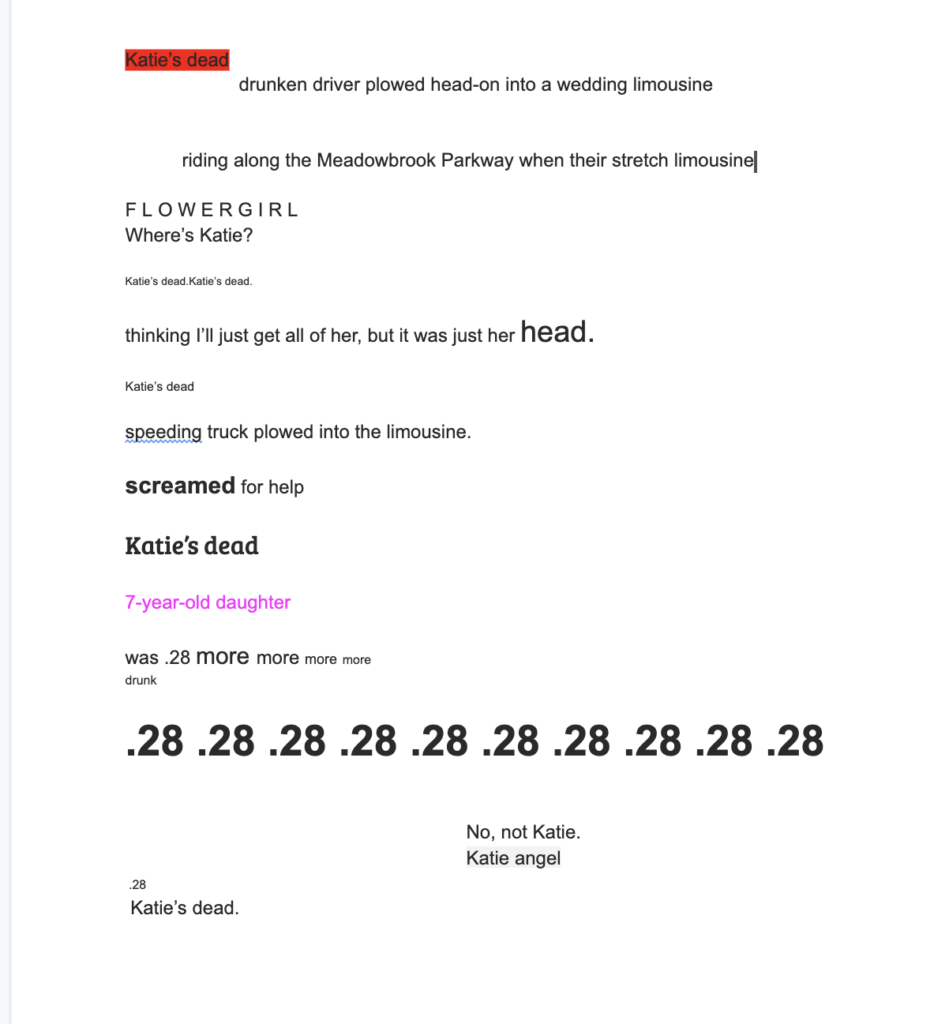“The Woman Warrior,” by Maxine Hong Kingston starts off by telling the tales of “The No Named Woman.” The author writes about an Aunt, Aiaa, who betrayed the family by having a child out of wedlock, and then killed herself and the child by drowning in a well. This creates a dramatic effect to this name because of how Kingston introduces this story right from the start. The story takes place in China, in the 1920s. The author writes about how the villagers with their strong beliefs in the supernatural came to the family home and destroyed everything in it to punish her family and her Aunt for acting as if she could have a private life, secret and apart from them. If the Aunt had betrayed the family, the author writes, “at a time of large grain yields and peace, perhaps she might have escaped severe punishment. But the men- hungry, greedy and tired of planting in dry soil- had been forced to leave the village in order to send food-money home. Adultery, perhaps only a mistake during good times, became a crime when the village needed food.”(Kingston-13) So the family who had been quiet about the pregnancy, broke their silence and cursed her telling her that she has killed them and that she’s never been born. The author is told not to tell anyone she had an aunt, that her father doesn’t want to hear her name, she has never been born. Being Chinese American often means one is torn between both worlds, as Kingston explains, being a woman heightens this. We further read how Kingston’s Chinese traditions and American lifestyle conflict.
When Kingston begins to menstruate, she is told the tale of the “No Named Women,” her aunt, and begins to analyse the story. Her mom tells her this at this time because this is the start of women hood and she doesn’t want her daughter to do what her aunt did, and be considered never born. Her mom says “don’t humiliate us. You wouldn’t want to be forgotten as if you have never been born. The villagers are watchful.” (Kingston-5) The villagers are so involved with everyone’s lives, as much as your close family. It seems everyone knows everyone’s business. Kingston imagines what old world China was like, she views it as repressive, and a strictly ordered society. Where you can’t live a private life. Everything had to be done for the sake of the family’s or village’s well-being. Therefore Kingston believes that her Aunt’s baby was a girl, and decided to save her from society’s rules. Rules were so strict that even her own father denies that his sister ever existed.
Kingston describes the romances allowed in her family, “Our family allowed some romance, paying adult brides prices and providing dowries so that their sons and daughter can be married to strangers. Marriage promises to turn strangers into friendly relatives—a nation of siblings.” (Kingston -12) Kingston proclaims it is very hard to reconcile the restrictive traditions and the relative freedom of life in America. I found it really important to further look at how her family impacted Aiaa, and what I saw as the final straw for her. Kingston tells us after the villagers left from destroying her family’s home, her family said “Aiaa we’re going to die. Death is coming. Death is coming. Look what you’ve done. You’ve killed us. Ghost! Dead ghost! Ghost!You have never been born.” (Kingston-14) Aiaa then ran as far as she could escaping these voices, these rules, and expectations. As mentioned before, Kingston believes the baby was a girl, she says “It was probably a girl, there is some hope of forgiveness for boys.” (Kingston-15) This shows how men and women were treated differently with different expectations in Chinese society. If the baby was a boy, maybe he would’ve lived a normal life. Kingston is filled with grief when she says “But there is more to this silence: they want me to participate in her punishment. And I have.” (Kingston- 16) Kingston has kept this story to herself for so long and is writing it in this memoir to her mother and father to explain how she feels and how she is distraught. She hasn’t said her aunt’s name in the twenty years she’s heard this story. Like Kingston says the punishment wasn’t the raid but in fact “the family deliberately forgetting her. Her betrayal so maddened them that they saw to it that she would suffer forever, even after death.” (Kingston -16) Society’s beliefs were so strong and powerful that if anyone, no matter how you are related, was punished somehow.
Discussion Questions
- If “No Name Woman” had had a baby boy rather than a baby girl, would she have committed suicide by drowning herself and the baby in her family’s well? Why, or why not?
- What is more important in the Chinese culture Kingston describes: the individual or the community?
Works Cited
Kingston, Maxine Hong. The Woman Warrior : Memoirs of a Girlhood among Ghosts. New York :Vintage Books, 1989.

